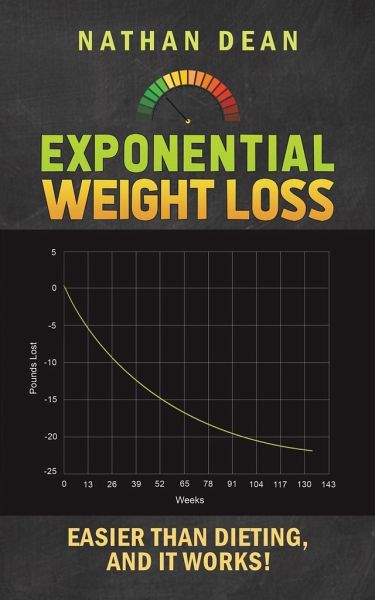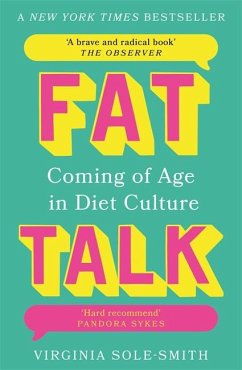
Exponential Weight Loss

PAYBACK Punkte
5 °P sammeln!
Have you lost weight by cutting out lots of calories, and then gained it all back? That's what almost always happens. It wasn't because you were weak - it was because you can't lose weight permanently with a short-term weight-loss plan. But you can lose as much weight as you want to - for good - with a calorie change so small you'll hardly notice it! This amazing new book tells you how. Diets and drugs let you lose a lot of weight quickly by drastically reducing your calorie intake. But you can't do that forever - it becomes dangerously unhealthy. When the drastic calorie reduction ends - as i...
Have you lost weight by cutting out lots of calories, and then gained it all back? That's what almost always happens. It wasn't because you were weak - it was because you can't lose weight permanently with a short-term weight-loss plan. But you can lose as much weight as you want to - for good - with a calorie change so small you'll hardly notice it! This amazing new book tells you how. Diets and drugs let you lose a lot of weight quickly by drastically reducing your calorie intake. But you can't do that forever - it becomes dangerously unhealthy. When the drastic calorie reduction ends - as it inevitably must - you'll almost certainly go back to eating as you did before it started. And when you do, you'll regain the weight you suffered so to lose, because your weight is directly related to your daily calorie intake. The new weight-loss medicines admit that you'll regain the weight you lost when you stop taking them. And quick-weight-loss diets can't go on for long without leading to malnutrition - that's why their advertisements say things like "Lose twenty pounds in three weeks" but never mention what happens later. In fact, for reasons explained in the book, most people wind up weighing more than before they started losing. That's why, despite billions of dollars spent annually on weight loss products, the average weight of Americans has gone up by thirty pounds since 1960. There's an easy, healthy way to lose weight permanently. It's called exponential weight loss, and this book explains how it works. Your body only requires about fifteen calories per pound to maintain itself each day. So cutting out 150 calories - the amount in a can of soda or a bag of chips - leaves your body unable to support ten pounds of your weight. To maintain itself, it will get the extra daily energy it needs by burning some of your stored fat, eventually using up ten pounds of it to get back in balance. It's slower, because that's how your body responds to a small change. But it's healthier. And it lasts, because your body adjusts once and for all to its new calorie balance. It's the roadmap you need to reach your long-term weight goal - and stay there.













